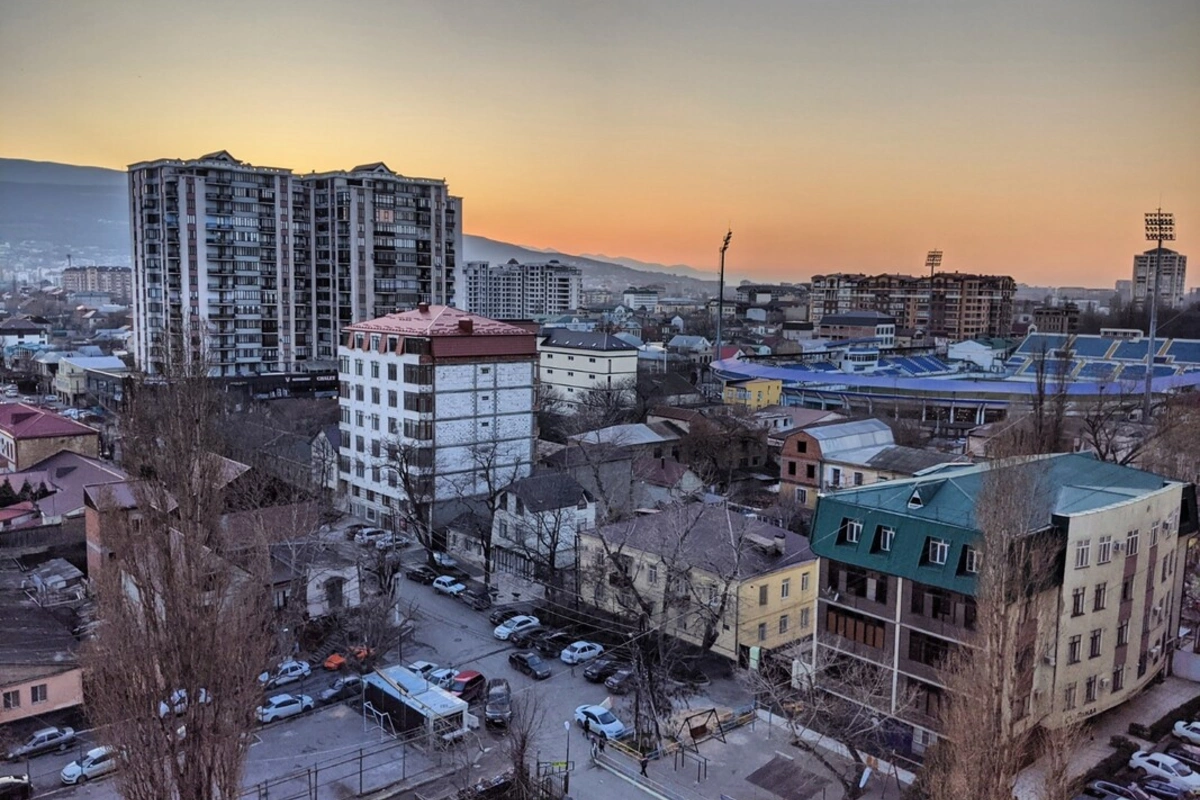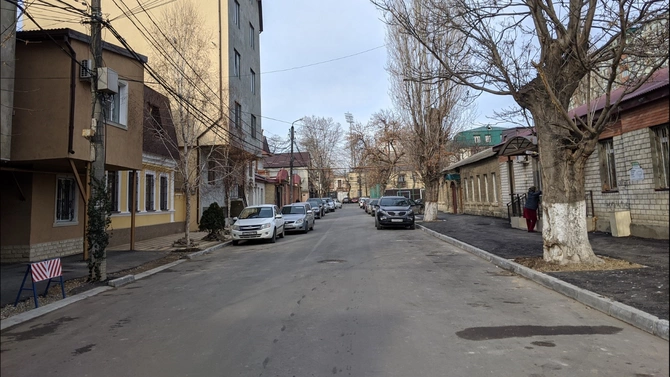
Since 2016, Dagestan’s biggest city has been labelled the ‘garbage capital of Russia.’ But that’s not the impression I got.
A view from downtown Makhachkela as the sun sets behind the mountain ridges. Image: Stephanie Lazerte
Though few foreigners seem to have heard of it, Makhachkala is the Caspian’s second-largest city – and Dagestan’s biggest. The population is estimated at around 600,000 – or over 700,000 if you add the officially separate naval port city of Kaspysk with which it merges. In Russia, the place has long had bad press. In the 1990s, it was affected by spill-over from the Chechen war. It was associated with clan feuds, Islamic militancy, and a 2012 double suicide bombing. More recently, Russian vlogger Ilya Varlamov labelled it “bad Makhachkala” (2015) and “Russia’s Garbage Capital” (2016) on finding appalling piles of domestic waste littering the streets.

But all of that is not the Makhachkela I witnessed in January 2020. The city’s architecture might lack grandeur, but it does boast a few eye-catching Stalin-era constructions along its distinctive backdrop of rocky ridges. Most of all, it is a fabulous human melting pot. Reflecting the vast linguistic smorgasbord that is Dagestan, you’ll overhear voices speaking a remarkable variety of unfamiliar languages. All but one were unknown to me even though I’m somewhat conversant in Lezgi, which is the fourth most widely spoken tongue there (after Avar, Kumyk, and Dargin – plus the generally understood Russian, of course).

On my visit, the streets of Makhachkala appear as tidy as you’d expect in much of the region. Image: Stephanie Lazerte
Perhaps because of my lack of communication skills, much was hidden away, and I certainly didn’t get far using English – which caused many a surprised gasp and friendly welcome. But with a bit of help, I discovered an incredible range of local foods to match the local variety of cultures. There were fancy cafes and restaurants mixed in with little ‘holes in the wall’ (my favourites). It was fun to sample a whole range of Darchin, Lezgi and Avar foods.
On the city's main streets, the sheer number of women (around 80% in head coverings) with small children was striking. Strolling around easily as an (uncovered) female, it was hard to square the reality with the image commonly touted - a place full of dangers. The real hazard seemed to be tripping over one of the hundreds of children running around.
Tucked between faceless Soviet apartment blocks, I stumbled across an old house converted into an alternative coffee shop popular with poets, philosophers and artists. The woman who took my order had purple hair and gave a warm, welcoming smile to my foreignness. I drank my cappuccino in cozy lamplight among chit-chatting university students. It almost reminded me of Tbilisi.
Sure, some of the sidewalks are a little unkempt. Still, I didn’t see a single ‘trash mountain’ – and if I’d been writing a tale about the garbage problems in January 2021, I think I’d have focussed on an altogether different aspect: the community effort that, on February 7, saw streets cleared of the worst of the remaining trash by a citizen-led volunteer clear-up. That, for me, is the spirit of Makhachkala.
Share on social media